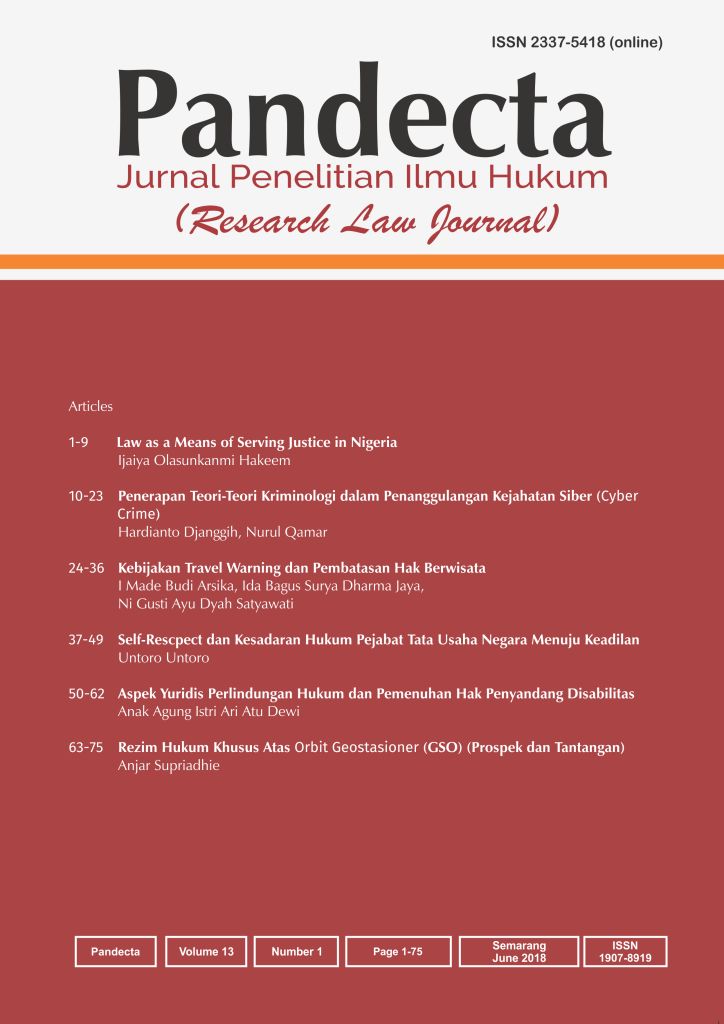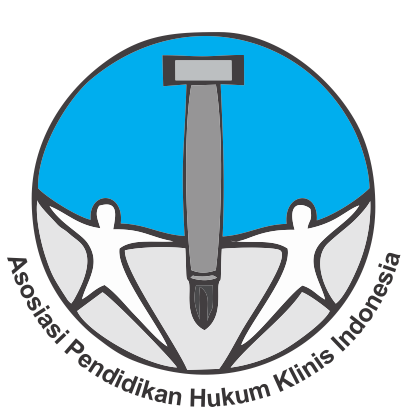Halal Certification Systems: A Comparison Between Indonesia and Turkey
(1) Faculty of Law, Universitas Negeri Semarang
(2) Faculty of Law, Universitas Negeri Semarang
(3) Faculty of Law, Universitas Negeri Semarang
(4) Faculty of Law, Universitas Negeri Semarang
(5) Faculty of Law, Universitas Negeri Semarang
Abstract
Ensuring the halal status of a product involves utilizing the services of a halal certification body, offering legal protection and confidence in halal product assurance for Muslim consumers. Indonesia is currently in the process of transitioning the certification authority from the non-governmental organization MUI to the government agency BPJPH under the Ministry of Religious Affairs. The halal certification mechanism through BPJPH closely aligns with the established process carried out by MUI. Similarly, Turkey has established the Halal Accreditation Authority (HAK) to guarantee the legal certainty of halal products, providing accreditation services for halal conformity assessment agencies. This study uses a descriptive method with a comparative approach. Focuses on positive legal nor governing the implementation of halal product between Halal Prodyct Assurance (JPH) and Halal Accreditation Authority (HAK). The findings reveal that in order to implement the Halal Product Assurance (JPH) system, the Indonesian government established the Halal Product Assurance Organizing Agency (BPJPH). The establishment of a globally recognized halal certification system and the removal of trade barriers in halal goods and services require the effective execution of responsibilities, as demonstrated by Turkey through the activities of the Halal Accreditation Authority (HAK). Turkey's strategy for ensuring the genuineness of halal products involves the Halal Accreditation Authority, tasked with evaluating, accrediting, and supervising the competence of halal conformity assessment bodies. This procedural framework aligns with both national regulations and international standards, incorporating additional technical regulations specified in the accreditation body's implementation documents.
Keywords
Full Text:
PDFReferences
Aminuddin, Muh. Zumar. “Sertifikasi Produk Halal: Studi Perbandingan Indonesia Dan Thailand.” SHAHIH: Journal of Islamicate Multidisciplinary 1, no. 1 (2016): 27–39. https://doi.org/10.22515/shahih.v1i1.52.
Amin, Ma’ruf. "Fatwa Produk Halal Melindungi dan Menentramkan." Pustaka Jurnal Halal (2010):79.
Faridah Hayyun Durrotul. “Sertifikasi Halal Di Indonesia : Sejarah Perkembangan, Dan Implementasi.” Journal of Halal Product and Research, 2 (2019): 68.
Fatmawati. “Perlindungan Hak Atas Kebebasan Bergamadan Beribadah Dalam Negara.” Konstitusi 8, no. 4 (2011): 489–520.
Gul, Maria, Junaid Akbar, Muhammad Ikramullah, and Ali Raza. “International Halal Industry And Its Impact On Global Halal Market (A Historical Review And Future Business Prospect).” Journal of Positive School Psychology 2022, no. 7 (2022): 5890–5907. http://journalppw.com.
Hidayat, Asep Syarifuddin, and Mustolih Siradj. “Sertifikat Halal Dan Non Halal Pada Produk Pangan Industri.” Jurnal Ahkam XV, no. 2 (2015).
Karimah, Iffah. “Perubahan Kewenangan Lembaga-Lembaga Yang Berwenang Dalam Proses Sertifikasi Halal.” Journal of Islamic Law Studies 1, no. 1 (2018): 107–31. https://scholarhub.ui.ac.id/jilsAvailableat:https://scholarhub.ui.ac.id/jils/vol1/iss1/4.
Mulyono, Agus, and Yahya Rachmana Hidayat. “IMPLEMENTASI KEBIJAKAN SERTIFIKASI HALAL.” RES PUBLICA: JOURNAL OF SOCIAL POLICY ISSUES 1, no. 1 (2022): 1–10.
Nasution, Khairul Bahri. “Konsep Hak Milik Dalam Fiqh Islam (Analisis Filosofis Terhadap Pengaturan Kepemilikan Dalam Islam).” Islamic Circle 1, no. 2 (2020): 80–91.
Ramlan, and Nahrowi. “Sertifikasi Halal Sebagai Penerapan Etika Bisnis Dalam Upaya Perlindungan Bagi Konsumen Muslim.” Ahkam 14, no. 2 (2014): 145–54.
Rosnan, Herwina, Ismah Osman, Norzanah Mat Nor, and Amelia Aminuddin. “Halal Certification: An Exploratory Study on Non-Certified Restaurants.” Advanced Science Letters 21, no. 6 (2015): 1854–57. https://doi.org/10.1166/asl.2015.6136.
Sukoso, Asep A. Prihanto, and Hartono Harimurti; Muhamad Irfan Sukarna. Ekosistem Industri Halal. Indonesia: Departemen Ekonomi dan Keuangan Syariah Bank Indonesia, 2020.
Syafrida. “PERAN MASYARAKAT DALAM PENYELENGGARAAN JAMINAN PRODUK HALAL DI INDONESIA.” National Journal of Law 21, no. 1 (2020): 1–9.
Undang-Undang No. 33 tahun 2014 tentang Jaminan Produk Halal
Peraturan Pemerintah No. 31 Tahun 2019 tentang Jaminan Produk Halal
Refbacks
- There are currently no refbacks.


